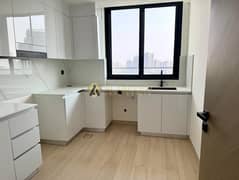Your handy guide to moving from The Philippines to Dubai
- Visa Types
- Visa Requirements
- Medical Tests and Health Insurance
- Accommodation
- Sponsor your Family from the Philippines
- Life in Dubai as a Filipino Expat
- FAQs
Are you planning a move to Dubai from the Philippines? Relating to another country can be made significantly easier with a handy checklist of everything you need to prepare for and expect when moving. MyBayut presents a guide for moving to Dubai from the Philippines, which covers important aspects such as visas, accommodation, life in Dubai, schooling and more!
TYPES OF VISA FOR DUBAI FROM THE PHILIPPINES
In our moving to Dubai From the Philippines guide, the first thing to consider is the visa. Here is a summary of the different types of visas available in the UAE.
Employment or Work Visa
This is the most common visa for Dubai from the Philippines and is issued if you receive a work contract from a company registered in Dubai. This visa type suits those wishing to have a rewarding career in the UAE.
The Dubai work visa is versatile. There are four types of work visas in Dubai: standard work visas, green visas, freelancer visas and domestic worker visas.
The requirements of the different visa types may vary. But here’s a list of the general requirements to apply for a work visa in Dubai from the Philippines.
- A valid passport with at least six months remaining validity
- A job offer from a UAE-based company (excluding green visas)
- Academic qualification documents
- Medical certificate
- Security clearance from your home country
Your employer will handle all the associated costs and processing for the work visa from the Philippines to Dubai. Ideally, Filipino nationals looking to move to Dubai on an employment visa must already have a work permit (valid for two months from the date of issue) from the company sponsoring them before they travel to the UAE.
Job Seeker Visa
The UAE Job Seeker visa is for those individuals from the Philippines who wish to look for a job in Dubai. The best feature of this visa type is that it does not require a sponsor or a host.
It’s a single-entry visa valid for 60 or 90 or a 120-day stay. Please note that it is not allowed to enter the UAE on a tourist visa to look for employment.
Visa applications can be made through the General Directorate of Residency and Foreigners Affairs Dubai’s official website. Create an account and choose the service required to submit your application, including documents and fees.
The general documents required for moving to Dubai from the Philippines for this type of visa are:
- Coloured Photo
- Passport copy
- Attested qualification certificate
- Health insurance
- Medical certificate
- Security clearance
- Account statement
- Return ticket
REMOTE WORK VISA
UAE Remote Work Visa allows you to relocate and continue working remotely for your current organisation seamlessly. This visa offers the flexibility to enjoy the vibrant lifestyle of Dubai while maintaining your professional commitments. However, eligibility requirements may vary. For comprehensive details, please visit the official UAE government’s visa portal.
UAE Residence Visa
The UAE Residence Visa is key to establishing a long-term residence in Dubai. This comprehensive visa includes multiple categories tailored to specific needs and circumstances. Whether you’re an investor, employee, or seeking family reunification, the UAE Residence Visa offers a path to make Dubai your home. Before applying, know the difference between an entry permit and a UAE residence visa. The general requirements for this visa type include:
- A valid passport with at least six months remaining till its expiry date
- Proof of accommodation
- Evidence of financial stability to support yourself and any dependents during your stay
- A medical fitness certificate
- Security clearance
GOLDEN VISA
Another option to consider when moving to Dubai from the Philippines is to get the UAE Golden Visa. This visa category is for those with exceptional talent and individuals with extraordinary arts, culture, sports and science achievements.
To qualify for this visa, essential requirements include:
- A valid passport with at least six months remaining validity
- Exceptional talent or extraordinary achievements in various fields, such as science, art, culture, sports, or business
- Investment of AED 10 million or more in the UAE
- Proof of financial means
- Medical fitness certificate
- A security clearance certificate
Besides the aforementioned visa types in our moving to Dubai from the Philippines guide, some other types of UAE visas are available for Pinoy expats, including:
- Dependant Visa: A visa for those whose spouses or parents are already residents of Dubai.
- Student Visa: A visa for those enrolling on one of the universities in Dubai.
- Investor Visa: The investor visa in Dubai for expats investing in companies in the UAE.
- Retirement Visa: Granted for five years, this visa is for expats over 55 years old

MOVING TO DUBAI FROM PHILIPPINES DOCUMENT REQUIREMENTS
If you are moving to Dubai from the Philippines on an employment visa, your employer will handle the necessary procedures and costs to issue the residency visa.
However, they will require certain documents from you such as photographs, passport copies, educational certificates that must be attested by the Department of Foreign Affairs and UAE Embassy in Manila and the Certificate of Good Conduct issued from the National Bureau of Investigation in the Philippines.
If your spouse is sponsoring you, ensure you also have your attested marriage certificate when applying for the residency visa.
If you are being sponsored by a higher education institute in the UAE, they will guide you on the student visa requirements for Dubai from the Philippines. If you qualify, you will be issued a one-year student visa in Dubai, which can be renewed if you study longer at the institute.
MEDICAL TEST AND HEALTH INSURANCE WHEN MOVING TO DUBAI FROM THE PHILIPPINES
As part of the residency visa procedures in Dubai, all expats must undergo a compulsory medical test when applying for or renewing their visa. They will also be issued an Emirates ID, the legal identity card in the UAE. The Emirates ID is necessary for many government-related and other procedures in the UAE, such as obtaining a driving licence in Dubai.
It’s also mandatory for all residents in the city to have basic medical insurance, including Filipino expats in Dubai. If you are here on an employment visa, it’s typical for the company sponsoring you to provide medical insurance. However, if a family member supports you, they must arrange medical insurance for you.
Students moving to Dubai from the Philippines can check with their university if they provide medical insurance and a student visa or find preferred partners in case they do not.

ACCOMMODATION FOR FILIPINO EXPATS IN DUBAI
One of the first things to consider before moving to Dubai from the Philippines is accommodation. The Dubai real estate market is booming, and residents will find plenty of options for luxury and pocket-friendly properties, including budget-friendly apartments, cosy townhouses and family villas.

- STUDIO
- |
- 1 BATH
- |
- 474 SQFT
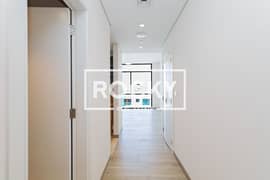
- 1 BED
- |
- 2 BATHS
- |
- 845 SQFT
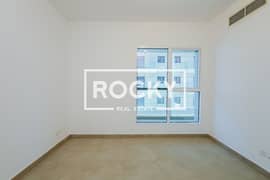
- 1 BED
- |
- 2 BATHS
- |
- 911 SQFT

- 1 BED
- |
- 1 BATH
- |
- 699 SQFT
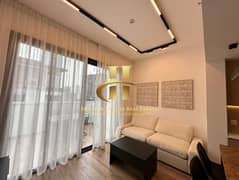
- 1 BED
- |
- 2 BATHS
- |
- 678 SQFT
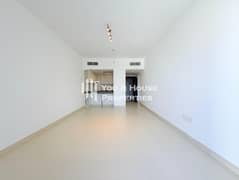
- 1 BED
- |
- 2 BATHS
- |
- 809 SQFT
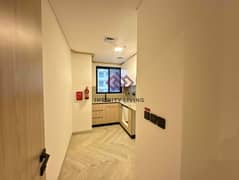
- 1 BED
- |
- 2 BATHS
- |
- 782 SQFT
You can also look at popular areas for Filipino expats in Dubai, such as Al Satwa, Al Rigga, Al Karama, Al Nahda and Bur Dubai. These areas are towards the ‘Old Dubai’ side of the city, which benefits from well-connected public transport options, affordable properties and a wealth of nearby amenities. Some areas are also near the Dubai-Sharjah border, meaning Filipino expats living here in Dubai can easily commute between the two emirates.

When renting a home in Dubai, remember that rental payments are often made through yearly, bi-annual or quarterly cheques.
In addition to their annual rent, residents must make monthly payments for the electricity and water connection and TV and internet package. Filipinos in Dubai should also set aside the commission for agents when finding a home, and a security deposit may also be required.
However, it’s possible to cut expenses with rental offers, such as chiller-free apartments in Dubai, where the landlord bears the cost of air-conditioning. You can browse more rental offers through Bayut’s listings for apartments for rent in Dubai. It’s also a good idea to have information about the tenancy laws in Dubai so you know the right and rules for tenants.
DOCUMENTS REQUIRED TO SPONSOR YOUR FAMILY IN DUBAI
After getting a job and a place to live, the next big step in moving from the Philippines to Dubai is to sponsor your family. There are two ways to start your family visa application.
You can apply online or through a registered typing centre in Dubai. Here is a list of the documents required to sponsor your family in Dubai.
- Passport copies of wife/husband and children
- Photos of the wife/husband and children
- Medical clearance certificate for the wife/husband and children above 18
- Copy of the employment contract or company contract
- A salary certificate from the employer stating the monthly salary
- Legalised marriage certificate
- Registered tenancy contract
- Latest utility bill
You can also sponsor your parents if you are a Dubai resident with an income of AED 20,000.
SETTLING IN DUBAI: WHAT IS LIFE LIKE FOR FILIPINOS IN DUBAI?
The UAE is home to a significant population of Filipino expats, who mainly reside in Dubai and Abu Dhabi. Thus, it’s possible to find many amenities catering to the Filipino population in Dubai.
The multicultural emirate of Dubai boasts a massive expatriate population, and residents can interact with cultures from across the globe in this vibrant city.
Keep reading for a glimpse of the lifestyle when moving to Dubai from the Philippines.
GETTING AROUND DUBAI
Those who relocate to Dubai from the Philippines will find multiple options to travel within the city, including public and private transport. Dubai is well-connected by a public transport system, which many residents rely on for their daily commute.

One of the most popular public transport modes for Filipinos and other expat communities is the Dubai Metro. Currently, two operating metro lines connect most of the older and newer districts of Dubai.
The areas not connected by the Dubai Metro can easily be accessed by the public bus system, operated by RTA (Road and Transport Authority). Taxis are plentiful in the city, although they are a more expensive option, and ride-sharing apps such as Uber and Careem are also popular.
Alternatively, expats can choose their private car, which will mean additional expenses such as car insurance and regular service maintenance.
SCHOOLS FOR FILIPINO EXPATS IN DUBAI
If you’re moving to Dubai from the Philippines with your family, schooling is one of the most important concerns. While the public schools in Dubai only cater to the local population, expats will find many private schools offering various curricula.
Most schools in Dubai offer British, American and IB curricula, but there are many Filipino schools in Dubai. There are also affordable options amongst the British schools in the emirate.
FOOD FOR FILIPINOS IN DUBAI
Dubai is truly a cosmopolitan city where residents can sample cuisines from across the globe, including Filipino food. Several Filipino restaurants in Dubai serve staples from the Philippines, such as crispy pata, adobo and more.
For those who prefer home-cooked food, most supermarket chains in Dubai, such as Carrefour, have dedicated aisles to Filipino cuisine. Otherwise, Filipino expats in Dubai can shop at one of the many Filipino supermarkets in Dubai, such as the Philippine Supermarket and Wow Pinoy Supermarket.
While most of these ethnic supermarkets are concentrated in the older districts of Dubai, residents can find branches of well-known supermarket chains in nearly every neighbourhood.

LIFESTYLE IN DUBAI
When moving to Dubai from the Philippines, new residents will discover that there is so much to do in the emirate regarding leisure and entertainment. But the best thing about Dubai is that residents can choose to live a modest or extravagant lifestyle, whichever they prefer.
For those looking to go all out, there are endless options in Dubai, from dining at the best restaurants in the city to partying the night away at the top nightclubs in Dubai.
Dubbed where the ‘East meets West’, Dubai is also ideal for jet-setting off to various destinations. Filipinos living in Dubai will be delighted to know it’s possible to pursue any passion or hobby in the city, with lush golf courses, thrilling ski slopes and water sports.

However, there are still plenty of things to do for those looking to save money to send home and live a budget-friendly lifestyle. Dubai has several verdant, family-friendly parks and sunny beaches offering free or cheap entry.
Pinoy expats in Dubai can also discover the cultural side of Dubai through the free museums and heritage districts. The waterfront promenades, and leisure hubs such as The Beach at JBR, Al Seef and Bluewaters Island are also popular options for expats for a weekend stroll.
Dubai is also home to multiple cinema chains that show the latest blockbusters, including Tagalog films, and many have credit card offers that residents can take advantage of.
Things to consider when moving to Dubai from the Philippines
- Always respect the local rules and traditions. This means dressing modestly for both men and women and avoiding public displays of affection.
- Filipino expats will find it easy to communicate with most people in English, although learning some Arabic can be helpful.
- Expats who want to contact family members back home can consider purchasing a monthly subscription for internet calling apps in Dubai, such as BOTIM or C’ME, which allows unlimited video and voice calls.
- There are also strict laws against driving under alcohol influence.
- Dubai can offer luxury living at its finest, but expats should also save money for when they retire.
- Filipino expats should apply for an OEC in Dubai before returning to the Philippines for a vacation or short visit. Those who do not have an OEC may be barred from leaving the Philippines.
FAQs About Moving to Dubai from the Philippines
How much is the cost of living in Dubai?
Expats need to consider the cost of living in Dubai. It may vary from one person or family to another. Multiple factors can help you save money. Make sure to calculate your approximate monthly expenses and be better prepared.
Can I come to Dubai on a tourist visa and search for a job?
No, you must apply for a job seeker visa instead of a tourist visa if you wish to go job hunting in Dubai.
And that ends MyBayut’s guide for moving to Dubai from the Philippines! Dubai is a beautiful place for Filipinos to build their career, interact with various cultures and put down their roots.
It’s also a good idea to familiarise yourself with the basic rules for expats in Dubai so you’ll have a smooth transition to the city. Filipinos living in Dubai should also apply to renew their Philippines passport at least a year in advance at the Philippine Consulate General in Dubai, as appointments are not readily available, and the process can take one to two months.
Obtaining a CENOMAR in the UAE is essential for Filipino expats who wish to marry. Explore our detailed blog for a step-by-step guide on the CENOMAR online application to fulfil legal marriage requirements.
Stay tuned to MyBayut for more articles for the Filipino community in Dubai!



